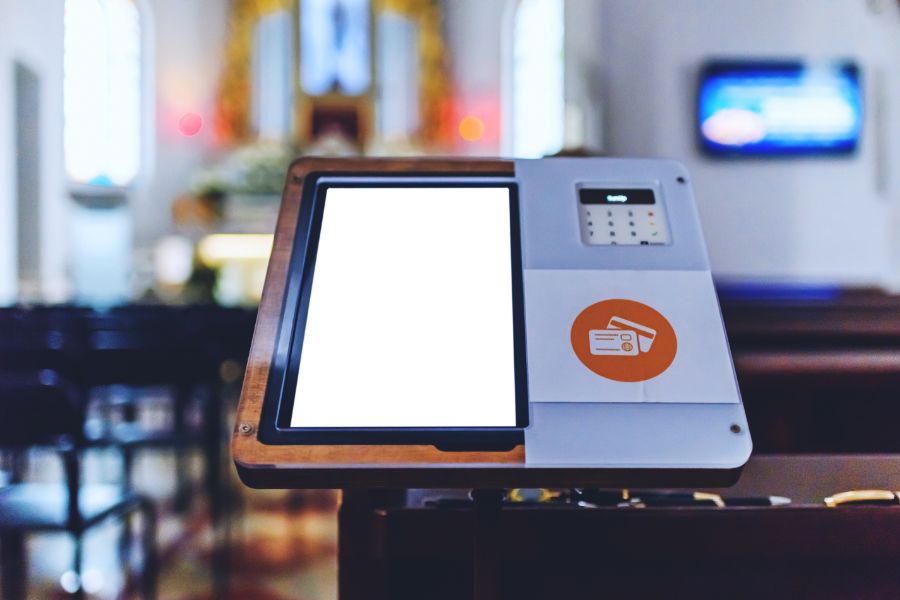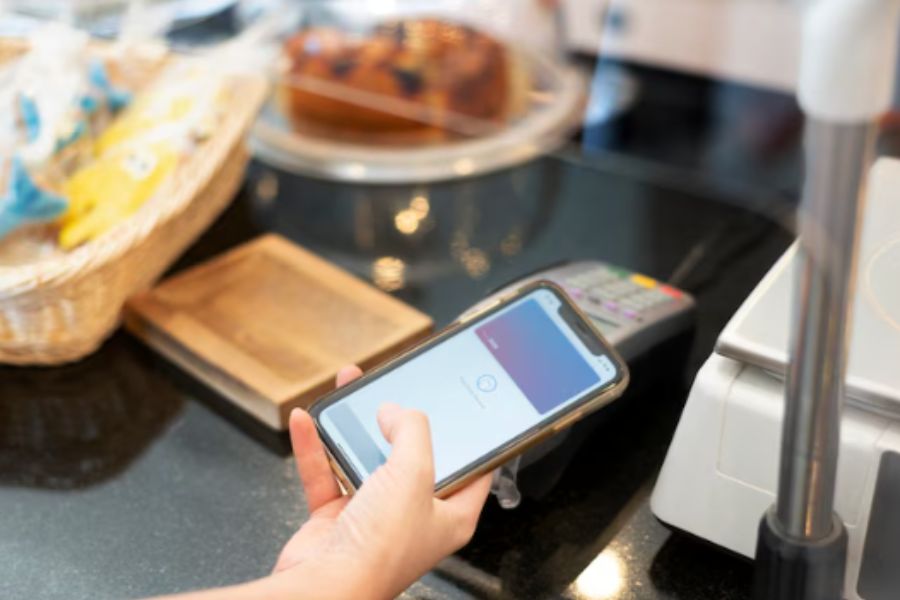The integration of self-service kiosk POS systems has become increasingly prevalent. These systems revolutionize the customer experience by offering convenience and efficiency. However, before diving into implementation, it’s crucial to consider various factors to ensure success. Each aspect plays a pivotal role, from user experience to security and vendor selection. By thoroughly examining these considerations, businesses can harness the full potential of self-service kiosk POS systems to drive growth and enhance customer satisfaction.
What is a self-service kiosk POS system?
A self-service kiosk POS (point of sale) system is an innovative technology solution designed to enhance customer experience and streamline transaction processes in various industries. It combines self-service kiosks and traditional POS systems to provide a seamless and efficient way for customers to place orders, make payments, and complete transactions without direct interaction with staff.
A self-service kiosk POS system consists of hardware components such as touchscreen displays, card readers, printers, and specialized software to facilitate transactions and manage orders. These kiosks are strategically placed where customers can easily access them, such as retail stores, restaurants, entertainment venues, airports, and healthcare facilities.
Importance of considering factors before setting up
Considering factors before setting up a self-service kiosk POS system is crucial. This planning stage is crucial as it lays the foundation for the success and effectiveness of the system implementation.
Here’s why it’s essential to carefully evaluate various factors:
- Efficiency and effectiveness: Setting up a self-service kiosk POS system without proper consideration of factors can lead to inefficiencies and operational challenges. By evaluating factors such as user experience, payment processing integration, and customization options, businesses can ensure that the system functions smoothly and meets the needs of both customers and staff.
- Customer experience: The customer experience is paramount in today’s competitive market. A poorly designed or implemented self-service POS system can result in customer frustration and dissatisfaction. Considering factors such as accessibility, security, and compliance helps businesses create a positive and seamless customer experience, leading to increased satisfaction and loyalty.
- Financial implications: Implementing a self-service kiosk POS system involves significant financial investment. Considering hardware costs, software costs, and long-term return on investment (ROI) allows businesses to make informed decisions and allocate resources effectively. By understanding the financial implications upfront, businesses can ensure that the investment in the system yields tangible benefits and contributes to their bottom line.
- Risk mitigation: Failure to consider factors such as vendor reputation, reliability, and experience in the industry can expose businesses to various risks, including system downtime, security breaches, and regulatory non-compliance. By conducting thorough due diligence and selecting the right vendors and partners, businesses can mitigate these risks and safeguard their operations and reputation.
- Strategic alignment: A self-service kiosk POS system should align with the business’s overall strategic objectives and goals. Considering factors such as scalability, flexibility, and compatibility with existing systems ensures that the system supports the long-term growth and evolution of the business. By aligning the system with strategic priorities, businesses can maximize their value and contribution to success.
Guest experience considerations
- User experience (UX): a seamless and intuitive user interface is essential for ensuring a positive user experience (UX) with a self-service POS system. The interface should be easy to navigate, with clear instructions and intuitive design elements to guide users through the ordering and payment process effortlessly. By prioritizing user experience, businesses can minimize user errors, reduce frustration, and enhance overall satisfaction.
- Payment processing integration: seamless integration with various payment methods is crucial for facilitating convenient and efficient transactions. Whether it’s credit cards, mobile payments, or digital wallets, the self-service kiosk POS system should support multiple payment options to accommodate diverse customer preferences. By offering flexible payment processing integration, businesses can streamline the checkout process and provide a frictionless payment experience for customers.
- Customization: customization options allow businesses to tailor the self-service kiosk POS system to their needs and branding requirements. From menu customization to branding elements and promotional displays, companies should have the flexibility to customize the kiosk interface to align with their brand identity and offerings. By offering personalized experiences, businesses can create unique and memorable interactions with customers, enhancing brand loyalty and engagement.
- Accessibility: ensuring accessibility for all customers, including those with disabilities, is essential for providing an inclusive and welcoming experience. Features such as adjustable height, tactile controls, and screen reader compatibility make the self-service kiosk POS system accessible to a broader audience. By prioritizing accessibility, businesses demonstrate their commitment to diversity and inclusion while expanding their customer base.
- Security: robust security measures are critical for safeguarding sensitive customer data and preventing unauthorized access or fraudulent activities. Encryption, tokenization, and secure authentication protocols help protect payment information and personal data transmitted through the self-service kiosk POS system. By prioritizing security, businesses can build customer trust and mitigate the risk of data breaches or security incidents.
- Compliance and legal considerations: compliance with industry regulations and legal requirements is essential for avoiding penalties and maintaining customer trust. Businesses must ensure their self-service kiosk POS system adheres to relevant regulations such as GDPR, PCI DSS, and ADA accessibility standards. By staying compliant, businesses demonstrate their commitment to ethical business practices and protect themselves from legal liabilities.
- Hardware durability and reliability: investing in high-quality, durable hardware components is essential for ensuring the reliability and longevity of the self-service kiosk POS system. The hardware should withstand frequent use and environmental factors such as temperature fluctuations and humidity. By prioritizing hardware durability and reliability, businesses can minimize downtime, reduce maintenance costs, and ensure uninterrupted customer service.
Financial Considerations
Hardware costs
One of the primary financial considerations when implementing a self-service POS system is the upfront investment in hardware. This includes the cost of purchasing kiosk units, touchscreen displays, card readers, printers, and any additional peripherals required for operation.
Businesses should carefully evaluate the quality, durability, and scalability of the hardware to ensure that it meets their operational needs and budget constraints. While initial hardware costs can be significant, investing in high-quality equipment can lead to long-term savings by reducing maintenance and replacement expenses.
Software costs
In addition to hardware costs, businesses must consider the expenses associated with acquiring and implementing POS software for their self-service kiosk system. This includes licensing, subscription, and customization or integration fees required to tailor the software to their specific needs.
To maximize the system’s functionality and value, it’s essential to choose software that offers robust features, scalability, and compatibility with existing systems. While software costs can vary depending on the vendor and package chosen, businesses should prioritize investing in reliable and secure software solutions that align with their budget and long-term goals.
Long-term return on investment (ROI)
Assessing the long-term return on investment (ROI) is crucial for determining a self-service kiosk POS system’s overall financial viability and success. While the initial investment in hardware and software may seem substantial, businesses should consider the potential cost savings and revenue opportunities generated by the system over time.
These may include labor cost savings from reduced staffing requirements, increased transaction volumes, and revenue through faster service and upselling opportunities, and improved operational efficiency, leading to higher customer satisfaction and loyalty. By conducting a comprehensive cost-benefit analysis and projecting the expected ROI, businesses can make informed decisions about investing in a self-service kiosk POS system that aligns with their financial objectives and maximizes their profitability in the long run.
Vendor selection
Reputation and reliability
When embarking on the selection process for a self-service kiosk POS system vendor, the reputation and reliability of the vendor are paramount. Businesses should meticulously research the vendor’s track record, including their history of delivering products and services, customer reviews, and overall standing within the industry.
A vendor with a positive reputation for reliability and integrity, like ConnectPOS, will provide a robust and dependable self-service kiosk POS solution. Additionally, businesses should consider the vendor’s financial stability and commitment to ongoing support and updates to ensure a long-term partnership that meets their needs and expectations.
Customer support and service level agreements
Effective customer support and clearly defined service level agreements (SLAs) are critical for vendor selection for self-service kiosk POS systems. Businesses should assess the vendor’s customer support offerings, including the availability of technical support, response times, and escalation procedures for resolving issues.
Furthermore, businesses should carefully review and negotiate SLAS to establish expectations regarding system uptime, maintenance schedules, and resolution times for any technical issues that may arise. By prioritizing vendors that offer robust customer support and comprehensive sales, businesses can minimize downtime, address issues promptly, and ensure the smooth operation of their self-service POS systems.
Experience in the industry
Experience in the industry is a key differentiator when selecting a vendor for a self-service kiosk POS system. Vendors with extensive experience understand the unique challenges and requirements of businesses operating in various sectors, allowing them to provide tailored solutions and expert guidance. Businesses should evaluate the vendor’s experience working with similar businesses or industries, including their past projects and case studies portfolio.
Additionally, businesses should consider the vendor’s knowledge of industry-specific regulations and best practices to ensure compliance and alignment with their business objectives. By choosing a vendor with proven experience in the industry, businesses can leverage their expertise to implement a self-service kiosk POS system that meets their specific needs and delivers tangible value.
FAQs (frequently asked questions) about self-service kiosk POS
- How do self-service kiosk POS systems benefit businesses?
Self-service kiosk POS systems offer several benefits to businesses, including increased efficiency, reduced labor costs, improved order accuracy, and enhanced customer satisfaction. By enabling customers to place orders and complete transactions independently, businesses can streamline their operations, reduce waiting times, and handle higher order volumes during peak hours. Additionally, self-service POS systems can provide valuable data insights that help businesses make informed decisions and optimize their operations for better performance and profitability.
- What types of businesses are best suited for implementing self-service kiosk POS systems?
Self-service kiosk POS systems are particularly well-suited for businesses in industries such as quick-service restaurants, fast food chains, retail stores POS, entertainment venues, and healthcare facilities. These businesses typically experience high customer traffic and can benefit from the efficiency and convenience offered by self-service POS systems. Businesses with limited space or staffing resources can also leverage self-service kiosks to optimize their operations and provide a seamless customer experience.
- How can I ensure the security of customer data with a self-service kiosk POS system?
Ensuring the security of customer data is a top priority when implementing a self-service kiosk POS system. To enhance security, businesses should implement robust encryption and tokenization protocols to protect sensitive information such as credit card details and personal data. Additionally, regular security audits and compliance with industry standards such as pci dss (payment card industry data security standard) help mitigate the risk of data breaches. Training staff on best practices for handling customer data and implementing strict access controls also contribute to ensuring the security of customer information.
- What are the common challenges faced during the setup and operation of self-service kiosk POS systems?
Common challenges during the setup and operation of self-service POS systems include hardware malfunctions, software glitches, user interface issues, and connectivity problems. Ensuring proper installation and configuration of hardware components, conducting thorough testing before deployment, and providing comprehensive staff training can help mitigate these challenges. Proactive maintenance and regular software updates help keep the system running smoothly and minimize downtime. By addressing these challenges proactively, businesses can maximize the benefits of self-service kiosk POS systems and provide a seamless customer experience.
Conclusion
The considerations outlined above are essential for businesses embarking on the journey of implementing self-service kiosk POS systems. By prioritizing factors such as user experience, security, and vendor selection, businesses can optimize their operations and elevate the customer experience.
If you want to know more about ConnectPOS’s feature for self-service kiosks, feel free to contact us.



